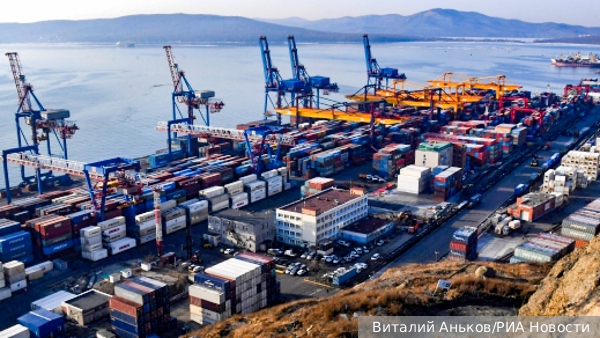
Why Western Sanctions On Russia Failed So Badly
By Rhod Mackenzie
Two years after the introduction of Western sanctions against Russia, it can be concluded that they did not achieve their intended goals, as indicated in the study 'Why did the sanctions not work?' conducted by the Center for Financial Analytics of Sberbank. RBC reported this with reference to a presentation of the research materials at the agency's disposal.
The report's authors attribute the low effectiveness of sanctions to several factors, including the Russian economy's low level of dependence on external capital, the continued demand for Russian raw materials by Western countries (albeit in smaller quantities), and the promotion of domestic production for import substitution.
According to a source at Sberbank, as clarified in the publication, the research was conducted for internal purposes.
According to researchers from the Sberbank Financial Analytics Center, Western sanctions have had the opposite effect in some cases.
They cited three examples, the first being that the departure of Western companies from Russia, whether voluntary or forced, has incentivised the growth of domestic production. In addition, the market was opened to Russian production through parallel imports and imports of alternative products from third party countries. This helped to avoid shortages in the consumer market.
Secondly, restrictions on capital withdrawal can strengthen the ruble exchange rate by keeping the currency within the country.
Thirdly, the persecution of Russian businesses in the West means that wealthy Russians (and citizens of other friendly countries) no longer consider Western countries a safe haven for storing their savings. As a result, their funds remain within the country and their savings are repatriated.
“Some of the sanctions even helped the Russian economy,” summarises the authors. However, they also impacted the economies of the sanctioning countries, leading to the “fragmentation of the world economy and a reduced role of the West.”
According to experts from the Center for Financial Analytics, many unfriendly countries faced difficulties after the introduction of restrictions. The sanctions had a detrimental effect on the countries affected, as their domestic production relied heavily on Russian goods and energy resources. For instance, Germany's GDP in 2023 decreased by 0.1% at constant prices and adjusted for calendar factors.
Despite the limited effectiveness of sanctions and their unintended positive impact in some cases, such as the launch of 'positive transformation processes' in the economy, the authors of the study believe that the development of new industries may face difficulties in the long term without access to Western technologies.
Experts from the Sberbank Financial Analytics Center have identified several factors contributing to the Russian economy's resilience to sanctions.
These include a high foreign trade surplus and a relatively low level of external debt as of the beginning of 2022.
Additionally, the Russian economy is not heavily dependent on external financing, while the world economy is highly dependent on Russian goods. The European Union still buys petroleum products made from Russian crude oil from party third countries like India. According to the study's authors, sanctions are generally ineffective against countries with significant foreign trade surpluses and low levels of external debt.
Analysts also note that rubles can be used to purchase many goods worldwide. The authors predict that by the end of 2023, the share of national currencies in mutual settlements between Russia and foreign countries will increase to 65%. With major trading partners, it will approach 70%. The authors believe that sanctions have created opportunities to earn money by building alternative schemes in logistics and payments. It is worth noting that restrictions on fund withdrawals lead to a strengthening, rather than a weakening, of the ruble exchange rate.
Another contributing factor is the successful redirection of most imports through friendly countries.
According to the authors of the study, imports fully recovered to the 2021 level in 2023, thanks to the establishment of parallel imports and imports through third countries. According to analysts, the transportation sector was the most affected in terms of imports, particularly with regards to aircraft and car spare parts. However, in other categories, imports from friendly countries were able to replace the affected imports. The analysts also noted that many initially identified critical imports were either replaced by friendly countries or established as domestic production.
To describe the crucial concept of import substitution, Sber analysts cite successful cases in various industries such as mechanical engineering, aviation, chemical, agro-industrial, and food. It is important to note that import substitution refers to the policy of replacing imported goods with domestically produced ones.
